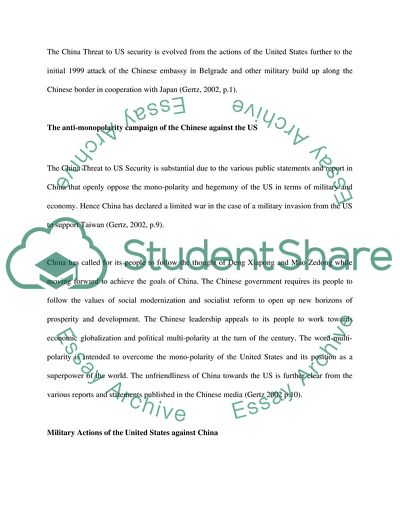Cite this document
(“The China Threat and US Security Research Paper”, n.d.)
The China Threat and US Security Research Paper. Retrieved from https://studentshare.org/politics/1720149-how-the-joint-missile-defense-md-between-us-and-japan-affects-the-security-relations-with-china-and-how-does-it-relate-to-the-validity-of-the-so-called-8220china
The China Threat and US Security Research Paper. Retrieved from https://studentshare.org/politics/1720149-how-the-joint-missile-defense-md-between-us-and-japan-affects-the-security-relations-with-china-and-how-does-it-relate-to-the-validity-of-the-so-called-8220china
(The China Threat and US Security Research Paper)
The China Threat and US Security Research Paper. https://studentshare.org/politics/1720149-how-the-joint-missile-defense-md-between-us-and-japan-affects-the-security-relations-with-china-and-how-does-it-relate-to-the-validity-of-the-so-called-8220china.
The China Threat and US Security Research Paper. https://studentshare.org/politics/1720149-how-the-joint-missile-defense-md-between-us-and-japan-affects-the-security-relations-with-china-and-how-does-it-relate-to-the-validity-of-the-so-called-8220china.
“The China Threat and US Security Research Paper”, n.d. https://studentshare.org/politics/1720149-how-the-joint-missile-defense-md-between-us-and-japan-affects-the-security-relations-with-china-and-how-does-it-relate-to-the-validity-of-the-so-called-8220china.


